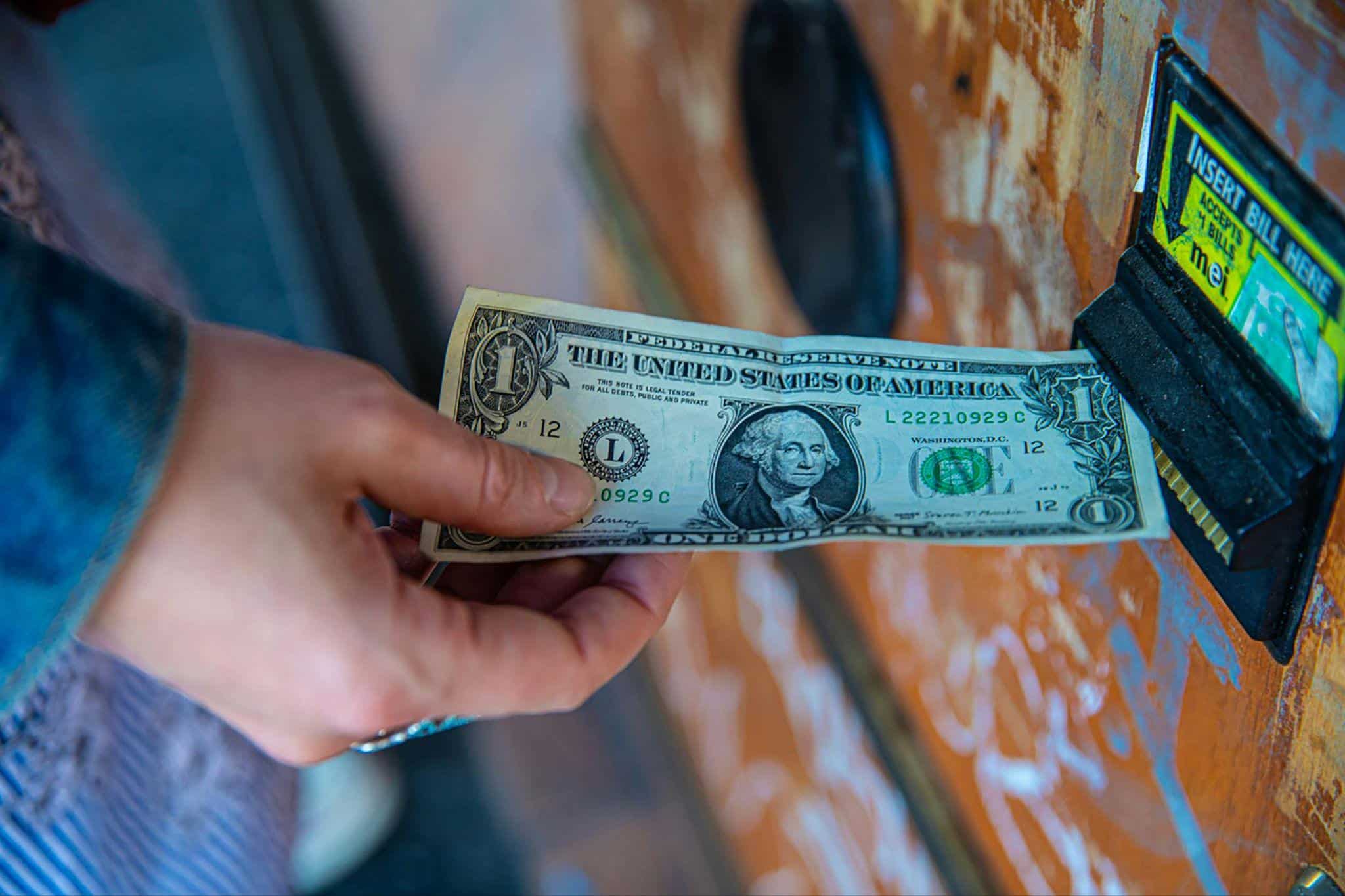Before You Bet the Farm: The Unbreakable Method to Test Your Business Idea Without Spending a Cent
Every great business begins as a flicker of an idea—one that sparks during a morning shower, in the car ride home, or while standing in line at a vending machine. But between that idea and your first sale lies a path filled with uncertainty, doubt, and risk. That is, unless you know how to test the idea before you commit. That’s where the smart entrepreneurs win—long before they’ve spent a cent, signed a lease, or quit their day job.
The truth is, you don’t need to invest thousands of dollars to validate your next big idea. You don’t need a fancy logo, a custom website, or even a product. What you do need is proof—evidence that someone, somewhere, is willing to take action on the problem you’re solving. And believe it or not, you can uncover that proof for free.
So before you bet the farm—before you spend your savings, your weekends, or your sanity—let’s explore the unbreakable method to test your business idea without spending a single dollar. Along the way, we’ll also examine some real-world examples, including one of the most commonly asked questions from new entrepreneurs: how much does a vending machine make a month?
That question alone, as you’ll discover, holds a clue to what true idea validation looks like.
More than 40% of new businesses fail because there’s simply no market need. That’s not a financial problem. It’s not a marketing problem. It’s a validation problem.
Entrepreneurs fall in love with their solution before ever understanding the problem. They rush to launch something because it sounds cool or looks good on paper, only to realize later that no one actually wants it. When that happens, no amount of branding, advertising, or hustle can save the ship. The answer? Flip the equation. Don’t start with a product. Start with a question.
The smartest founders are detectives first. They get obsessed with understanding who they’re helping and why. Before they make anything, they search for signals—pain points, desires, gaps, frustrations—that reveal a real demand. And then, only then, do they build the solution around that data.
This is where the unbreakable method comes in. It’s not about betting big. It’s about validating small things.
Every winning business solves a clear, pressing problem. If your idea doesn’t, it won’t survive. Start by asking yourself: what exact pain point does my idea solve? Not vaguely, but precisely. The more specific you get, the more powerful your validation will be.
For example, don’t say, “People want snacks.” That’s too broad. Say, “Students on campus can’t get affordable energy snacks after 10 p.m., and delivery services charge too much.” That’s a real problem with emotional weight—and a vending machine might just be the solution.
Let’s say you’re considering entering the vending industry. Before you purchase anything, ask yourself: what’s missing in the location you’re considering? Do people need access to personal care items in a hospital waiting room? Do busy professionals at a coworking space want grab-and-go brain food? The clarity in your problem definition will sharpen your entire approach.
Here’s where most people go wrong. They take their idea and immediately start building—buying machines, designing packaging, or setting up websites. But if no one’s willing to talk about your idea, no one will buy it either.
Your next step isn’t to sell. It’s to listen.
Head into online communities where your target audience already spends time. Reddit, Facebook groups, Discord servers, Quora, LinkedIn communities—these are gold mines of real human feedback. Ask honest, thoughtful questions. Don’t pitch. Just explore.
Say you’re thinking about a vending machine tailored to young professionals in office spaces. Join a productivity or workplace group and ask, “What snacks or essentials do you wish were available without leaving the building during a workday?” Then watch what they say. When people start naming problems, pay attention to what comes up again and again.
In this stage, your goal is to confirm that a real, common, and emotionally charged problem exists. You’re not trying to be right. You’re trying to be accurate.
Once you’ve uncovered a real need, the next move is not to build the entire business. It’s to test whether someone will engage with your solution to that need in its most basic form. This is sometimes called a “minimum viable offer,” but don’t let the jargon scare you.
It can be as simple as a landing page describing your concept, a social media post gauging interest, or even a Google Form asking people to vote on what they want. The best part? You can do all of this for free.
For instance, if you’re exploring a vending business, you can run a test like this:
Imagine setting up a survey in a college Facebook group that reads, “We’re thinking about bringing a 24/7 vending machine with energy drinks, late-night snacks, and charging cables to your campus. Would you use it? What would you want stocked? Drop your email if you want a free credit when it launches.”
With one simple, zero-cost post, you’re getting real feedback, product preferences, and a potential customer list—all without buying a single vending machine. And if 50 or 100 people respond enthusiastically, guess what? That’s real-world validation.
At this stage, people aren’t just telling you they like your idea. They’re taking action, and that’s what matters most.
Once you’ve found interest and engagement, you’re in the green zone. Now it’s time to see if people are willing to take the next step. For digital products, you might offer a free early-access signup. For services, maybe it’s a free consultation. For physical products, it could be a waiting list or even a pre-order reservation.
Still no money spent.
This is where your idea becomes more than a concept. You’re collecting names, feedback, and signals. You’re testing pricing, packaging, and positioning. And you’re doing it all on platforms that cost nothing—email tools like MailerLite, website builders like Notion or Card, even free versions of Canva and Stripe if you go one step further.
By now, if your business idea is viable, you’ll have clear signs: people asking when it’s available, DMing you with questions, or signing up to be first in line.
If none of those signals are happening? That’s okay, too. You’ve learned without losing.

Let’s return to the vending machine question: how much does a vending machine make a month?
The reason this question is so often asked is because people instinctively want to understand value before investment. That’s exactly what idea validation is all about.
The answer, like any business, depends on the location, product, audience, and timing. But here’s a rough breakdown from actual operators:
In low-traffic areas like small offices, a vending machine might bring in $100 to $300 per month in gross revenue. In moderate-traffic spots such as schools or residential complexes, that figure climbs to $400 to $800 monthly. And in high-demand locations—hospitals, malls, busy transit hubs, or universities—a single machine can earn $1,000 to $3,000 or more each month. Profit margins typically range from 30% to 50%, depending on your products, restocking frequency, and payment systems.
Let’s be clear: not every vending machine is a gold mine. But if you validate the location and audience first, you drastically increase your odds of success. You don’t guess. You know. Because you’ve asked the right people the right questions before making any financial move.
That’s the real takeaway here. It’s not about vending. It’s about approach.
Once you’ve validated demand, collected data, and confirmed that people want what you’re offering, you can move forward confidently. You’re not throwing spaghetti at the wall. You’re making decisions based on evidence.
If you’ve gotten strong feedback and early interest, now’s the time to go lean and launch. Start small. Use your audience’s words to shape your messaging. Focus on results, not perfection.
And if the validation wasn’t there? That’s still a win. You’ve saved yourself time, money, and heartache. You’ve gathered valuable insight. You’ve honed your instincts. And you’re now ten times more prepared to test your next idea.
The process is repeatable. The risk is minimal. And the reward is freedom—freedom to build something that people truly want, backed by evidence, not hope.
Entrepreneurship isn’t about taking blind leaps of faith. It’s about taking calculated steps based on real signals. Before you invest money, time, or reputation, validate. Test your assumptions. Have conversations. Be curious. If there’s a fire to be lit, a spark of interest will show itself early. And if it doesn’t, move on without regret.
Remember, the best entrepreneurs aren’t the ones who build the fastest. They’re the ones who learn the fastest.
And now, you’ve got a method that lets you do just that.
So before you bet the farm—test the soil. Ask the questions. Find the people. And validate the problem. Only then should you plant the seed.
Because in business, as in life, growth belongs to those who prepare the ground first.
You may also like...
Diddy's Legal Troubles & Racketeering Trial

Music mogul Sean 'Diddy' Combs was acquitted of sex trafficking and racketeering charges but convicted on transportation...
Thomas Partey Faces Rape & Sexual Assault Charges

Former Arsenal midfielder Thomas Partey has been formally charged with multiple counts of rape and sexual assault by UK ...
Nigeria Universities Changes Admission Policies

JAMB has clarified its admission policies, rectifying a student's status, reiterating the necessity of its Central Admis...
Ghana's Economic Reforms & Gold Sector Initiatives

Ghana is undertaking a comprehensive economic overhaul with President John Dramani Mahama's 24-Hour Economy and Accelera...
WAFCON 2024 African Women's Football Tournament

The 2024 Women's Africa Cup of Nations opened with thrilling matches, seeing Nigeria's Super Falcons secure a dominant 3...
Emergence & Dynamics of Nigeria's ADC Coalition

A new opposition coalition, led by the African Democratic Congress (ADC), is emerging to challenge President Bola Ahmed ...
Demise of Olubadan of Ibadanland
Oba Owolabi Olakulehin, the 43rd Olubadan of Ibadanland, has died at 90, concluding a life of distinguished service in t...
Death of Nigerian Goalkeeping Legend Peter Rufai

Nigerian football mourns the death of legendary Super Eagles goalkeeper Peter Rufai, who passed away at 61. Known as 'Do...




